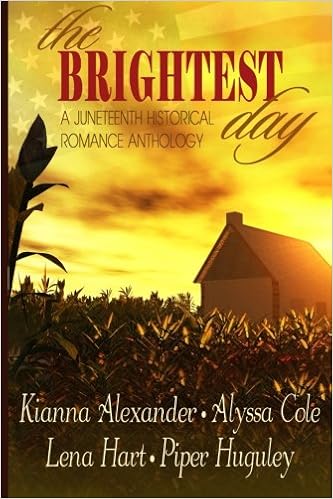In 1866 Malinda Russell self-published a cookbook containing
useful receipts for the kitchen in the
hopes of raising enough money so she could return to Tennessee and attempt to
reclaim her property, property she’d been forced to leave behind when she’d
fled Northward due to her Union sympathies. Malinda Russell was a Woman of
Color, born free by law because her mother Karon had been born after her
grandmother, also called Malinda Russell, was emancipated. The US slave system
was descent down the maternal line based, a particularly noxious form of
slavery which still exists in some African countries (see www.antislavery.org for the definitions of modern day slavery). It is notable that she
does not mention her father's or grandfather’s status. She also doesn’t mention
any aunts or uncles who might have been born prior to her grandmother obtaining
her freedom and what their status was.
Her book was the first cookbook published by an African-American woman and one of the very few cookbooks which authentically details
Southern plantation cooking and as such is a hugely important primary source document. While she mostly focuses on cakes, Russell also
includes recipes for cordials and preserves, how to make eggs last longer and how to make various medical
ointments. My love of old cookbooks is such that I spent a morning happily
enthralled reading the free digital version of her book.
Malinda’s life story reads like fiction – as a teenager she tried
to emigrate to Liberia but was robbed and forced to obtain work as a laundress
in Lynchburg VA and there she learned how to cook. She married but her husband
died, leaving her with a disabled son and so she ran a boarding house in a spa
town in eastern Tennessee and then for 6 years successfully ran a pastry or cake
shop until the American Civil War forced her to start over in Michigan. Among other things she was robbed of her considerable life savings by a Guerilla band who threatened her with death if she revealed their names. I do hope she did raise enough money to return
to Greenville Tennessee and reclaim her property.
I love reading and
writing about women with indomitable spirits who struggle against the odds and
succeed but Malinda's is not a story I can tell. Thankfully there are other writers
who can. At the moment they are often marketed as African-American historical
romance writers but they are really saga writers in the tradition of Catherine
Cookson, that great doyenne of British woman’s historical fiction who famously
claimed she didn’t write romance (meaning books like Barbara Cartland wrote). Other British saga
writers include Josephine Cox, Benita Brown and Penny Jordan when she was
writing as Annie Groves as well as Winston Graham who wrote Poldark.
British saga writers differ from historical romance writers in that
historical romance writers like me tend to focus on heroes who are of the first
estate with the emotional growth of the relationship being the primary focus, whereas saga writers tend to have the heroes being working or lower
middle class (the villains are often weak men of the first estate) and the romance is often secondary to the woman’s personal growth. Sagas
are sometimes in UK publishing parlance known as Clogs and Shawls or Rats and Rickets
books. When I first moved to the UK, the
saga reigned supreme in the UK publishing world with Mills & Boon being basically the only publisher
to publish the sort of historical romance I had enjoyed in the US. It wasn’t
until more than a decade after she published her last book that Cookson ceased
to be the most checked out author in the UK library system. Before I moved from
California to Northumberland, I read a lot of Cookson so I could better
understand my new home and grew to enjoy this sort of writing.
If anyone else like me loves reading about indomitable women
who overcome great odds to thrive, Alyssa Cole and Piper Huguley write excellent
historical sagas. There are other American saga writers but I really enjoy
these writers’ novels. They both contributed to The Brightest Day: A Juneteenth Anthology which
I was privileged to read before Alyssa Cole received a Rita nomination for her novella Let It Shine. That anthology can be a good
place to start to get a flavour of the books available. Piper Huguley’s Milford College series is also excellent (her
prequel The Lawyer’s Luck is free to download). If you enjoy reading Catherine
Cookson or Annie Groves (Penny Jordan), you will love Piper Huguley.
My only regret is
that because these books are often marketed African-American historical romance
and shelved in the African American section of booksellers that they can be
overlooked by readers who go to the romance/women's fiction section, looking for such books
which illuminate hidden bits of the American experience and feature strong heroines. I am firmly of the view that we need diverse romance
and that all romance should be shelved together, not softly segregated by skin colour.
Michelle Styles writes warm, witty and intimate historical
romances for Harlequin Historical in a wide range of time periods. Her next
Viking-set romance, The Warrior’s Viking Bride, will be published in March
2018. In her free time, she loves reading all sorts of romance because it
affords her the opportunity to walk in someone else’s skin. You can read more
about Michelle and her books at www.michellestyles.co.uk



2 comments:
fascinating history
I thought it was as well which is why I posted about it. It is also why I love historical women's fiction in all its guises.
Post a Comment